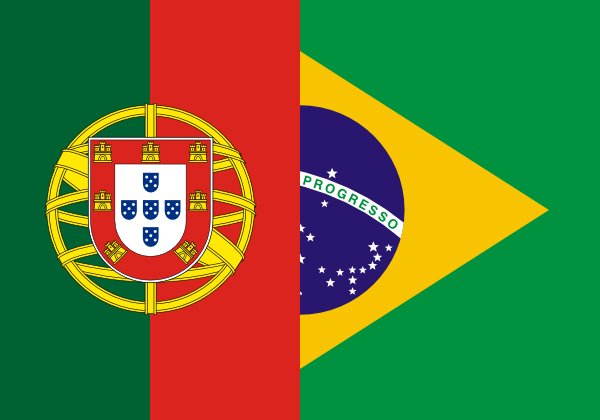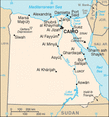Many people have been on holiday to a destination which becomes a regular, favourite haunt, their first choice for spending time away from home and a break from work. This place becomes like a second home, a home away from home, and they form friendships with other regular visitors as well as people who live and work there.Some visit so regularly that they start to pick up some of the local language spoken in that destination. It may be some general small phrases to express basic niceties or greetings or order a favourite dish or drink in their preferred restaurants. Others are so enchanted by their home from home that they sign up to a class to learn more of the language!
Informal travel encompassing positive experiences is one way to generate this interest in language. For others, this interest stems from the workplace and may be due to regular contact with speakers of the language, a professional necessity to know the language and eventually become a Portuguese language specialist, perhaps a desired skill or simply a preference with a view to development that will have some vocational and personal benefits
So far it is clear from this article that there are many reasons why people choose to learn a language other than as part of formal educational studies.
When language learners begin their learning they often learn and become familiar with the language spoken by the individuals with whom they come into contact or the variant or expressions, pronunciation and accent of the region to which they frequently travel. Once a certain confidence has grown, it can become frustrating for them or even come as a shock when they unexpectedly encounter a speaker from a different part of the country or even from a different country where the same language is spoken!
Portugal is like every other country where its national language has some differences particularly in how it sounds such as from the very north to the very south, for instance, or between cities such as Lisbon and Coimbra. Then there are the many African countries, former Portuguese colonies, where the language is structurally the same and considered the European variant of the language but sometimes spoken with a slightly different accent.
The most shocking differences encountered in the Portuguese language is found in Brazilian Portuguese.
It is very common in Portugal to visit a restaurant or coffee shop, for example, and hear a language being spoken which contains some elements that are recognisably Portuguese, but in other moments sounds like an entirely different language.
Let’s consider why suddenly hearing Brazilian Portuguese can be a shock to the Portuguese language learner’s ears. The Portuguese language has some quite “hard” sounds such as a hard “Z” which gives it almost a Russian sounding quality to non-Portuguese ears. There are some guttural sounds, or “throaty” sounds, which are when an “R” comes at the beginning of a word. These sounds are also surprisingly apparent in the middle of some words including in the European Portuguese pronunciation of “falar” (to speak) where it is heard between the first “A” and the “L”. Then there are some soft and hard “SH” sounds particularly where words end with an “S”. In European Portuguese “T” and “D” are pronounced as an anglophone or some other non-Portuguese speakers would expect.
The verb “falar” mentioned above is a great example to use to distinguish between European and Brazilian Portuguese. The first “A” is unexpectedly pronounced more like an “E” and overall this word sounds more like “fehr-lar”. Spoken by a Brazilian speaker the vowels are longer and pronounced more like “fah-lahr”.
A big difference between these variants is in the sound of the letters “T” and “D” in the Latin American variant since both of these are pronounced as a soft “ch” or “j” sound usually in the middle of a word. Take now the word “futebol”. The European speaker says this in much the same way as an English speaker whereas the American variant is “foo-cheh-ball”. Such differences can be heard in words similar to “liberdade”. European Portuguese is “lee-behr-dad” while its counterpart is “Lee-behr-dah-jeh”.
Pronunciation and accent are not the sole differences although they are significant. Structural changes in the language exist too. With some exceptions such as in questions, in Portugal pronouns normally follow the verb, for instance, “chamo-me” (I am called or literally, I call myself). The structure of the latin variant would be “me chamo”.
The above is not an exhaustive account of Portuguese differences but provides an insight. It is clear that language learning does indeed have its challenges, however, language learning should be fun and it would be no fun if little surprises didn’t turn up once in a while and make us think. Whether the learner chooses Brazilian or European Portuguese one tip for learning a language is to accustom the ear to the accent, pronunciation and intonations. Listening to TV shows regardless of how much is being understood is helpful allowing the learner to focus on the sounds. With some basic Portuguese vocabulary the learner will soon feel more confident about conversations with native Portuguese speakers when in their chosen Lusophone destination.
Informal travel encompassing positive experiences is one way to generate this interest in language. For others, this interest stems from the workplace and may be due to regular contact with speakers of the language, a professional necessity to know the language and eventually become a Portuguese language specialist, perhaps a desired skill or simply a preference with a view to development that will have some vocational and personal benefits
So far it is clear from this article that there are many reasons why people choose to learn a language other than as part of formal educational studies.
When language learners begin their learning they often learn and become familiar with the language spoken by the individuals with whom they come into contact or the variant or expressions, pronunciation and accent of the region to which they frequently travel. Once a certain confidence has grown, it can become frustrating for them or even come as a shock when they unexpectedly encounter a speaker from a different part of the country or even from a different country where the same language is spoken!
Portugal is like every other country where its national language has some differences particularly in how it sounds such as from the very north to the very south, for instance, or between cities such as Lisbon and Coimbra. Then there are the many African countries, former Portuguese colonies, where the language is structurally the same and considered the European variant of the language but sometimes spoken with a slightly different accent.
The most shocking differences encountered in the Portuguese language is found in Brazilian Portuguese.
It is very common in Portugal to visit a restaurant or coffee shop, for example, and hear a language being spoken which contains some elements that are recognisably Portuguese, but in other moments sounds like an entirely different language.
Let’s consider why suddenly hearing Brazilian Portuguese can be a shock to the Portuguese language learner’s ears. The Portuguese language has some quite “hard” sounds such as a hard “Z” which gives it almost a Russian sounding quality to non-Portuguese ears. There are some guttural sounds, or “throaty” sounds, which are when an “R” comes at the beginning of a word. These sounds are also surprisingly apparent in the middle of some words including in the European Portuguese pronunciation of “falar” (to speak) where it is heard between the first “A” and the “L”. Then there are some soft and hard “SH” sounds particularly where words end with an “S”. In European Portuguese “T” and “D” are pronounced as an anglophone or some other non-Portuguese speakers would expect.
The verb “falar” mentioned above is a great example to use to distinguish between European and Brazilian Portuguese. The first “A” is unexpectedly pronounced more like an “E” and overall this word sounds more like “fehr-lar”. Spoken by a Brazilian speaker the vowels are longer and pronounced more like “fah-lahr”.
A big difference between these variants is in the sound of the letters “T” and “D” in the Latin American variant since both of these are pronounced as a soft “ch” or “j” sound usually in the middle of a word. Take now the word “futebol”. The European speaker says this in much the same way as an English speaker whereas the American variant is “foo-cheh-ball”. Such differences can be heard in words similar to “liberdade”. European Portuguese is “lee-behr-dad” while its counterpart is “Lee-behr-dah-jeh”.
Pronunciation and accent are not the sole differences although they are significant. Structural changes in the language exist too. With some exceptions such as in questions, in Portugal pronouns normally follow the verb, for instance, “chamo-me” (I am called or literally, I call myself). The structure of the latin variant would be “me chamo”.
The above is not an exhaustive account of Portuguese differences but provides an insight. It is clear that language learning does indeed have its challenges, however, language learning should be fun and it would be no fun if little surprises didn’t turn up once in a while and make us think. Whether the learner chooses Brazilian or European Portuguese one tip for learning a language is to accustom the ear to the accent, pronunciation and intonations. Listening to TV shows regardless of how much is being understood is helpful allowing the learner to focus on the sounds. With some basic Portuguese vocabulary the learner will soon feel more confident about conversations with native Portuguese speakers when in their chosen Lusophone destination.



